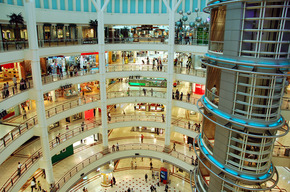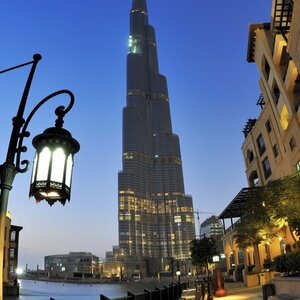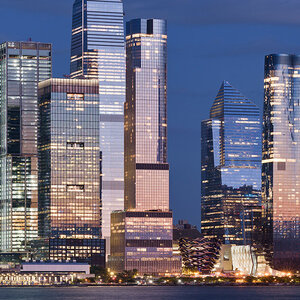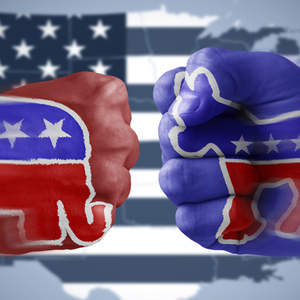The WPJ
THE WORLD PROPERTY JOURNALReal Estate Facts Not Fiction
Commercial Real Estate News

European Malls Adding New Services to Survive Internet Era
Commercial News » Europe Commercial News Edition | By Francys Vallecillo | March 18, 2013 11:05 AM ET
As the culture of shopping steadily shifts from brick and mortar to online, Europeans mall owners are adding government and medical services to keep customers.
In order to avoid the same failed outcome of retailers like Blockbuster, malls must become more like full-service community centers, property experts at the annual MIPIM trade fair in Cannes, France, told Reuters.
 It is no longer enough to only offers goods that can easily, and comfortably be purchased online.
It is no longer enough to only offers goods that can easily, and comfortably be purchased online. "The days of the stand-alone mall are numbered," David Roberts, the chief executive of architect Aedas, told Reuters.
Owners need to find new services and entertainment to make malls more attractive.
"I once saw a clinic in a Brazilian mall where you checked in and are buzzed on a device when they are ready. In the meantime you go shopping," Florencio Beccar, fund manager of CBRE Global Investors European shopping center fund, told Reuters. He mentioned a large medical center as "a big plus" in a mall he recently purchased in Germany.
Mall owners like Land Securities, Intu, Westfield and Klepierre are offering promotions to frequent shoppers that are tracked through mobile devices.
These changes might not be enough, experts told Reuters. A recent forecast showed 90 percent of retail sales growth in Britain, France and Germany between 2012 and 2016 is expected to be online, according to the property arm of French insurer AXA.
With the shopping culture shifting to online retailers, investors will look differently at property. "There is a trend of money moving away from all but the best and most regionally dominant malls into logistics as they are economically shielded," Simon Hope, global head of capital markets at property consultant Savills, told Reuters.
Investors will see higher yields for high quality logistics property, at six or seven percent compared to four or five percent for top shopping centers, analysts say.
To counter the trend, malls need to find new revenue, experts say.
"Stores will get bigger and become more like adventure parks that attack all of your emotions" Christian Ulbrich, chief executive for Europe, Middle East and Africa at property consultant Jones Lang LaSalle, told Reuters. "Globetrotter has a climbing wall and cycle track in its Frankfurt store to try out its products."
Same-day deliveries are another example of retailers re-thinking their operations. Some may cooperate with competitors to operate smaller, more efficient logistics sites close to city centers, Ulbrich told Reuters.
"The issue they all face is that shopping is no longer enough of a reason to go to shopping centers," he said.
Sign Up Free | The WPJ Weekly Newsletter
Relevant real estate news.
Actionable market intelligence.
Right to your inbox every week.
Real Estate Listings Showcase
Related News Stories
Commercial Real Estate Headlines
- U.S. Commercial Mortgage Originations Spike 27 Percent in Q2 Over Q1
- Phnom Penh's Commercial Office, Retail Markets Face Slowdowns in 2024
- Global Edge Data Center Market to Hit $300 Billion by 2026
- Commercial Property Transactions in Japan Dive 25 Percent Annually in Q2
- Delinquency Rates for U.S. Commercial Property Loans Downticks in Q2
- Megawarehouse Lease Deals in U.S. Increase in 2024
- Office Tenants' Flight to Quality Buildings Increases in 2024
- Commercial Lending in Japan Upticks 6 Percent Annually in Q1
- AI Driving Significant Global Data Center Growth in 2024
- Total U.S. Commercial Mortgage Debt Rises to $4.7 Trillion in Q1
- U.S. Commercial Mortgage Delinquencies Rise in Early 2024
- Asia Pacific Office Sector to Further Reprice Throughout 2024
- U.S. Retail Foot Traffic to Surpass Pre-Pandemic Levels by 2025
- Commercial Real Estate Lending in U.S. Slowed in First Quarter
- Japan Commercial Property Investment Volume Jumps 7 Percent in Q1
- Asia Pacific Commercial Property Investment Leads the World, Spikes 13 Percent
- Driven by High Rates, U.S. Commercial Lending Imploded 47 Percent in 2023
- After Two Year Slump, Prime Multifamily Metrics Uptick in U.S.
- Commercial Co-Broker Commissions Not Affected by NAR-DOJ Settlement, Yet
- U.S. Office Buildings with Upscale Tenant Amenities Still Enjoy Premium Rents in 2024
- U.S. Commercial, Multifamily Mortgage Delinquency Rates Uptick in Q4
- U.S. Commercial Mortgage Debt Continued to Rise in 2023, Hits $4.7 Trillion
- Nonresidential Construction Spending in the U.S. Falls Sharply in January
- U.S. Multifamily Construction Starts to Decline in 2024
- Commercial Mortgage Lending in U.S. Shows Signs of Stabilization in Late 2023
- Architecture Billings Decline in December as Soft Business Conditions Persist
- Government Sector Claimed Largest Portion of 100 Biggest U.S. Office Leases Signed in 2023
- U.S. Commercial, Multifamily Borrowing Dives 25 Percent Annually in Late 2023
- Record High Multifamily Construction Deliveries Drive Vacancy Rates Higher
- Commercial Property Investment in Japan Implodes 57 Percent Annually in Late 2023
- Green Energy Companies Flocking to New York City Office Space
- Asia Pacific Commercial Property Investment Upticks 3 Percent in Q4
- U.S. Commercial, Multifamily Borrowing to Hit $576 Billion in 2024
- Japan is Top Cross Border Commercial Property Investment Target in 2024
- U.S. Delinquency Rates for Commercial Properties Increased 6 Percent in Q4 of 2023
- Commercial Property Investment in Japan to Weaken in 2024
- Office Landlords Nationwide Increasing Concessions to Lure Tenants in U.S.
- Hong Kong's Commercial Property Market Faces Ongoing Challenges in 2024
- Online Returns in the U.S. Could Total $82 Billion This Holiday Season
- More Pain Expected in 2024 for America's Commercial Property Sector
Reader Poll
Marketplace Links
This website uses cookies to improve user experience. By using our website you consent in accordance with our Cookie Policy. Read More





